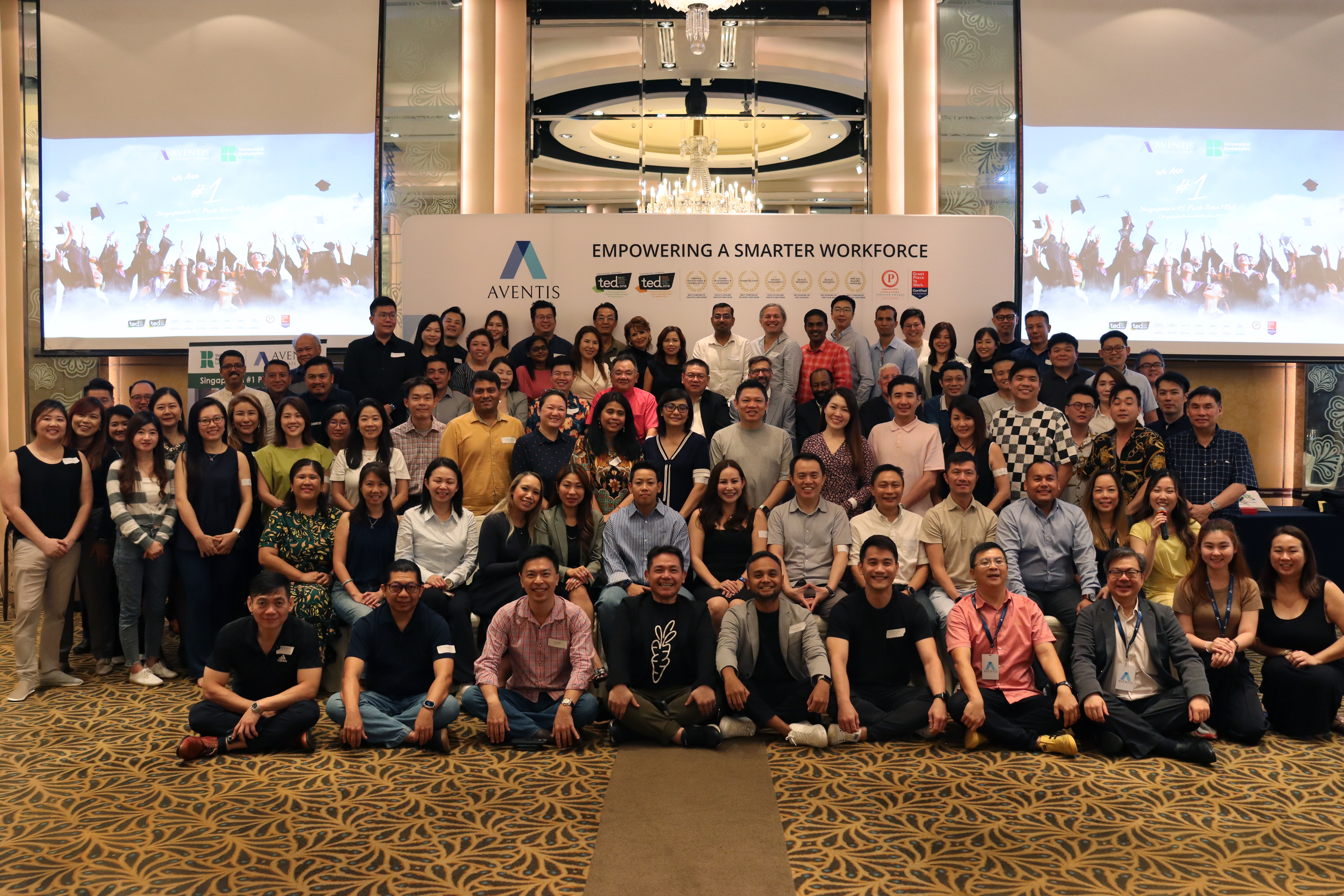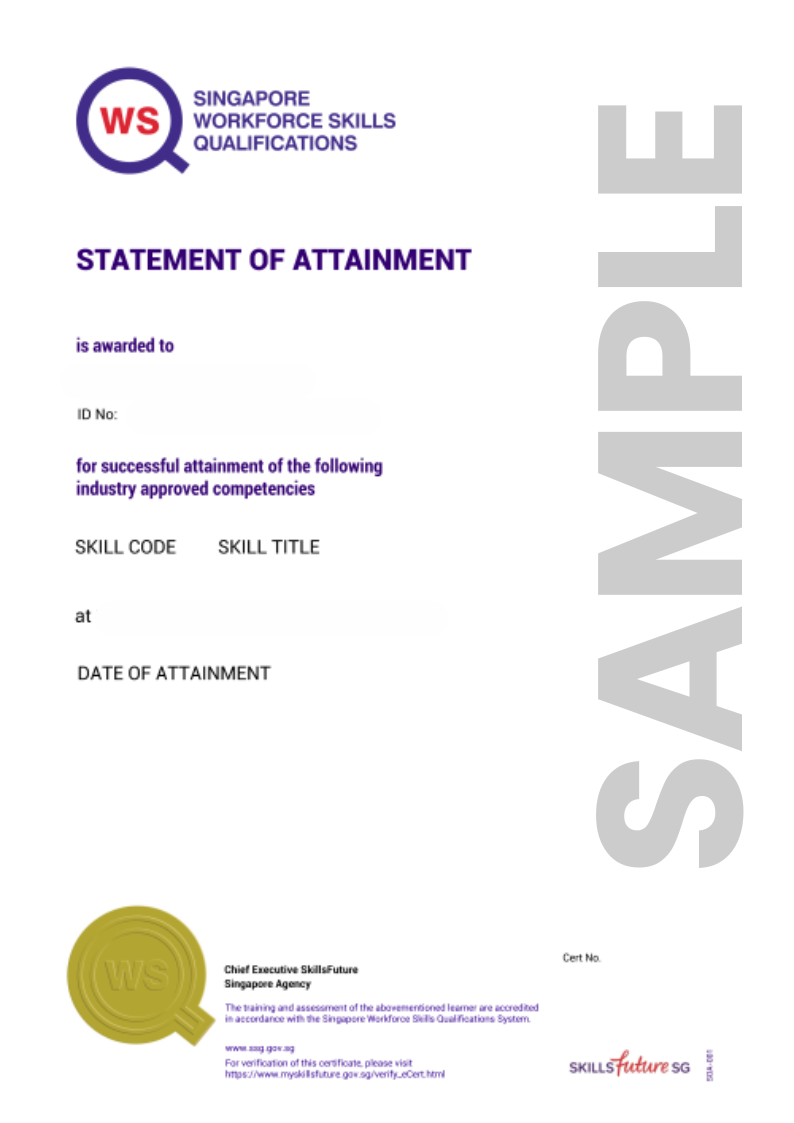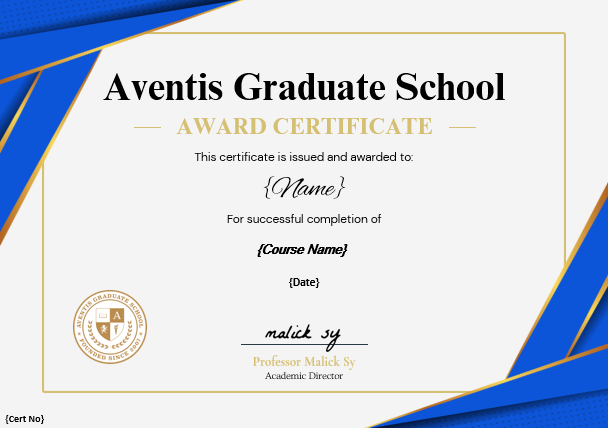Health Psychology
You'll discover how to create meaningful self-care routines, build stress-resilient systems, and foster a culture of well-being within your team or organization. Designed for professionals who give their all, this course empowers you to protect your own well-being while staying effective and fulfilled in your role. It’s your go-to guide for turning resilience and self-care into everyday habits that fuel long-term success and impact.
Health Psychology Course
$0.00 ($708.50 bef. Subsidy)
-$4550.00 (WSQ Subsidy)*
-$253.50 (SFC Credits)*
*This is a projected amount, should you qualify for these.
E-Learning via Zoom
2 Days, 9am to 5:30pm

Looking for 90% Subsidy?
View Corporate Training
Why Choose Health Psychology?
Studying health psychology helps you understand how the mind, body, and behavior interact to influence well-being. It equips you with tools to promote healthy lifestyles, manage stress, and support mental and physical health. Whether you're in a helping profession or focused on personal growth, it offers valuable insights to improve lives, build resilience, and foster healthier communities.
2-Day E-Learning via Zoom
Course ID: TGS-2025053122
Who is This Course For?


*Learners need to possess basic information and communication technology (ICT) skills. There are no *pre-requisites for professionals who would like to pursue the certification course.
Core Competencies You'll Gain:
Develop stress management for teams
Design processes for sustained resilience
Build holistic self-care frameworks
Health Psychology Course Details
Our Health Psychology course is designed for individuals seeking practical, science-backed strategies to promote mental and physical well-being in themselves and others. As the focus on holistic health and resilience grows across industries, this course offers hands-on training in psychological principles, stress management, and behavior change techniques. Ideal for professionals exploring a career in health and wellness, those looking to enhance their current roles in healthcare, social services, or education, or anyone passionate about supporting mental well-being, this course empowers learners to make a meaningful impact in personal and professional settings alike.
Synchronous
E-Learning via Zoom
2 Days,
9.00am to 5.30pm

Course Fee & Subsidies
Singaporeans aged
40 and above
Course Fee
$708.50
70% Subsidy
-$455.00
SFC Credits
-$253.50
Amount to Pay
$0
Singaporeans aged
below 40
Course Fee
$708.50
50% Subsidy
-$325.00
SFC Credits
-$383.50
Amount to Pay
$0
Permanent
Residents
Course Fee
$708.50
50% Subsidy
-$325.00
Amount to Pay
$383.50
*Please note that a $20 non-refundable and non-claimable registration fee applies for all course registrations
*Prices quoted are inclusive of GST at the prevailing rate
SkillsFuture Credits: All Singaporeans aged 25 years old and above can use their SkillsFuture Credits to fully offset the remaining fees.
UTAP Support: In addition, NTUC members can utilize UTAP to offset 50% of remaining fees (capped up to $250 per year)
Have questions? Read FAQ or Contact Us
Course Dates for Health Psychology
No schedule dates available for this course.
Meet Your Trainers

Anthony Wong Teck Boon
Anthony Wong Teck Boon is a seasoned clinical supervisor and counsellor with over 15,000 hours of counselling and supervisory experience. He holds a Master of Arts in Counselling and Guidance and a Postgraduate Certificate in Clinical Supervision. Anthony is a Master Clinical Member and Registered Clinical Supervisor with the Singapore Association for Counselling (SAC), where he serves as the Assistant Honorary Treasurer on the Executive Committee.

Anil Singh Sona
Anil Singh Sona is a seasoned educator and trainer based in Singapore, specializing in Psychology, Sociology, and Public Safety and Security. With over 13 years of experience, he has served as a Senior Associate Lecturer and academic coach at various government and private institutions. Throughout his career, Anil has been recognized for his teaching excellence. Notably, he received Teaching Excellence Awards from SUSS in 2018 and 2022, and an Honourable Mention in 2021. In 2022, he was also honored with the Lecturer Service Award by SUSS for his decade-long service.
Health Psychology Course Outline
- Current Challenges in Organizational Stress Management
- Identifying and addressing stressors in organizational settings
- How stress impacts resilience and self-care across teams
- Strategies for Embedding Supportive Practices
- Leadership initiatives for fostering supportive practices
- Communication strategies to enhance team well-being
- Creating a Stress-Responsive Culture
- Systems for monitoring and mitigating stress in real-time
- Role of organizational culture in shaping resilience
- Immediate Applications and Problem-Solving
- Case studies: Addressing organizational stress through supportive practices
- Group exercises: Developing action plans for stress management
Topics:
- Elaborating the Need for Organisational Resilience and Self-Care Systems
- The role of resilience and self-care in organizational well-being.
- Identifying gaps and challenges in current practices.
- Establishing Systems for Resilience and Self-Care
- Strategies to build resilience and self-care tailored to organizational needs .
- Systemic planning for resilience and self-care implementation.
- Policy Integration and Accountability Mechanisms
- Aligning resilience and self-care practices with organizational policies.
- Creating accountability mechanisms to ensure sustainability for long-term adoption.
- Monitoring and Evaluating Organisational Resilience Systems
- Metrics for evaluating the effectiveness of resilience and self-care processes.
- Iterative approaches to refining systems based on feedback.
Topics:
- Introduction to Holistic Self-Care Frameworks to align Individual and Organisational needs
- The concept of holistic self-care and its dimensions (physical, emotional, mental well-being.
- Importance of aligning self-care frameworks with individual and organizational needs.
- Designing Holistic Self-Care Frameworks
- Steps to develop an integrated self-care framework targeted for individuals and teams.
- Group exercises: Incorporating diverse aspects such as physical, emotional, and mental well-being into the framework
- Real-World Applications of Self-Care Frameworks
- Case studies: Examples of successful holistic self-care frameworks in organizations.
- Lessons learned and best practices for framework implementation.
Course materials will be provided in soft copy (digital format) as part of our eco-friendly and sustainability effort. Printed hard copies are available upon request. For any special requests (e.g., printed materials or accessibility needs), please inform us in advance.
Check Out Other Popular Courses
3 Easy Steps to Enroll
1
choose desired
course schedule
Choose convenient classes on evenings or weekends.
2
subsidy
Calculation
Fill out the form to calculate your government subsidies.
3
register
Online
Secure your place with a deposit and start today.
achieve mastery in Health Psychology today


Upon successfully completing the Health Psychology course at Aventis Graduate School, you will receive a WSQ Statement of Attainment recognized by employers in Singapore. This certification serves as a testament to your expertise in digital assets, helping you showcase your skills to potential employers and professional networks.
Bonus Tip: Display your certification on LinkedIn to strengthen your professional profile and capture the attention of potential employers.
FAQ
Health psychology is the study of how psychological, social, and emotional factors influence physical health and well-being. It explores how behaviors, thoughts, and feelings affect our ability to prevent illness, manage chronic conditions, and recover from health challenges.
Health psychologists examine the connection between mind and body, helping individuals adopt healthier lifestyles, cope with stress, and make positive behavior changes. They work across healthcare, public health, education, and workplace settings to design interventions, improve patient outcomes, and promote overall wellness. At its core, health psychology aims to understand and improve how people think about and manage their health.
Yes, up to 70% funding support is available from The Institute of Banking & Finance (IBF) for our IBF-accredited programmes:
The IBF Standards Training Scheme ("IBF-STS") offers funding for training and assessment programmes accredited under the Skills Framework for Financial Services.
Eligible Singaporeans and PRs enrolled in our IBF-accredited courses can receive funding support through IBF-STS, subject to fulfilling all eligibility requirements.Yes. For self-sponsored Singaporeans aged 25 years old and above, you can use your SkillsFuture Credit to offset the remaining course fees after WSQ funding.
To check your SkillsFuture credit balance, please follow these steps:
- Go to https://myskillsfuture.gov.sg
- Click on ‘Submit SkillsFuture Credit Claims’
- Login with your SingPass
- Click on the arrow (>) at the top right hand corner. You will be able to see a drop-down list of your Available SkillsFuture Credits.
After you have registered for a course, an Aventis representative will reach out to guide you with the SkillsFuture Credits
*Please note that our courses are not eligible for “Additional SkillsFuture Credit (Mid-Career Support)’. You will only be able to use available credits from ‘SkillsFuture Credit’ and ‘One-off SkillsFuture Credit Top-Up’.Yes, all our courses are eligible for Union Training Assistance Programme (UTAP) Funding. NTUC Union members can use UTAP to offset 50% of unfunded course fees (capped at $250 per year).
This claim must be done after completion of the course. Please refer to the UTAP FAQ for more information.
Yes, both can be utilized concurrently. UTAP claims are processed after SkillsFuture Credits have been applied.
Illustrative Example:
- Total Course Fee: $1,000
- IBF Subsidy (70%): $700
- Remaining Fee: $300
- SkillsFuture Credit Applied: $200
- Out-of-Pocket Expense: $100
- UTAP Reimbursement (50% of $100): $50
The IBF funding support works on a nett fee model. This means that the subsidy is applied upfront, and you will only need to pay the balance course fees after the subsidy. For example, if you are eligible for 70% subsidy, you only need to pay the remaining 30% upfront.
To be eligible, you’ll have to meet the following prerequisites.
For Self-Sponsored:
All Singaporeans or Singapore Permanent Residents (PRs) that are physically based in Singapore and successfully complete the course will be eligible.
- Be a Singaporean Citizen or PR based in Singapore
- Minimum of 75% attendance (this means that you must attend at least 6 out of 7 lessons)
- Pass the final assessment
Any balance course fees can be offset using your SkillsFuture Credits & NTUC UTAP funding.
For Company-Sponsored:
- Be from Financial Institutions that are regulated by the Monetary Authority of Singapore (MAS) (either licensed / exempted from licensing) or Fintech companies that are registered with the Singapore Fintech Association.
- Be a Singaporean Citizen or PR physically based in Singapore
- Minimum of 75% attendance (this means that you must attend at least 6 out of 7 lessons)
- Pass the final assessment
A laptop is required for this course. No special software or other hardware is required for this course participation.
 Supercharge Your Career with Generative AI & ChatGPT!
Supercharge Your Career with Generative AI & ChatGPT!
